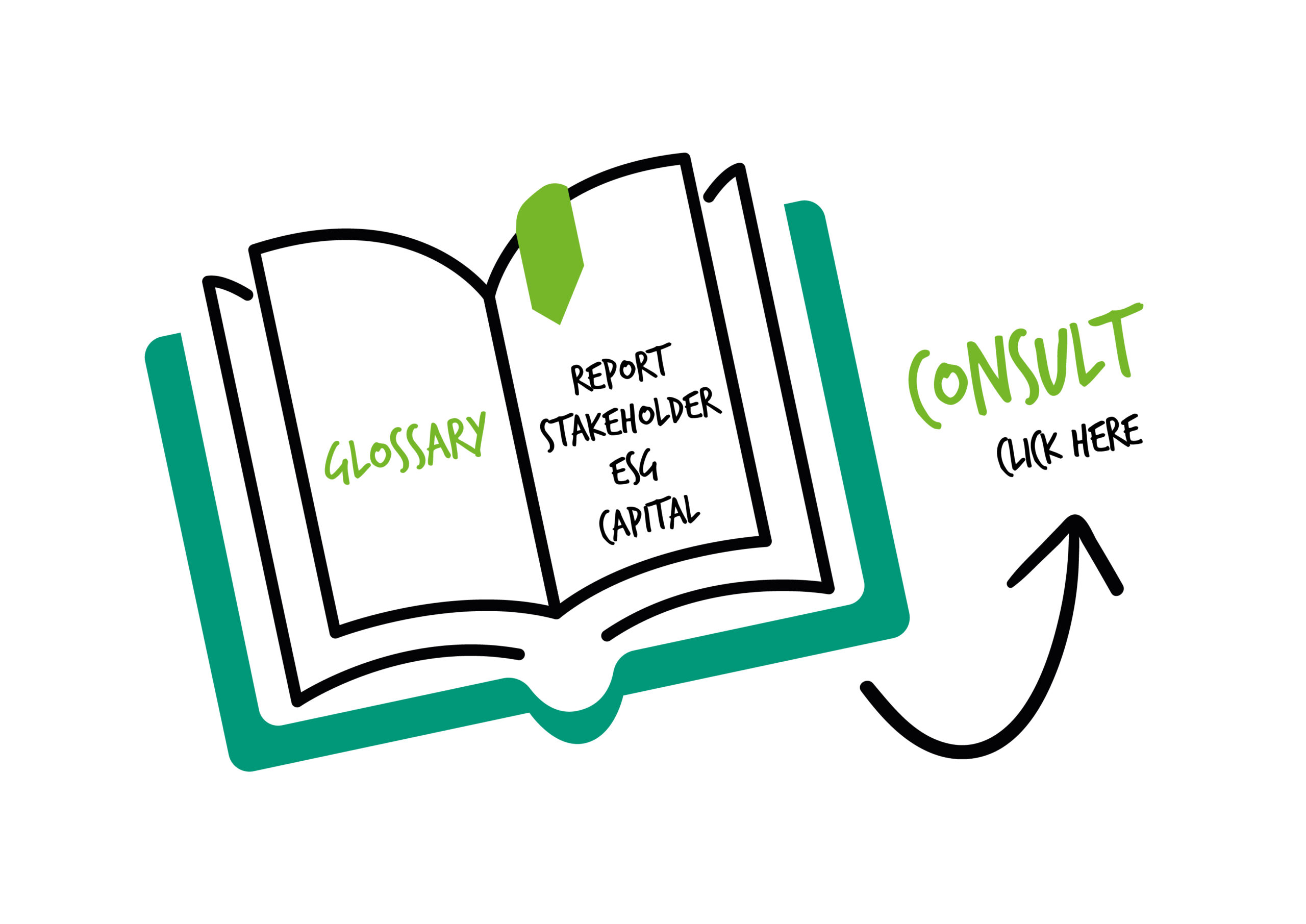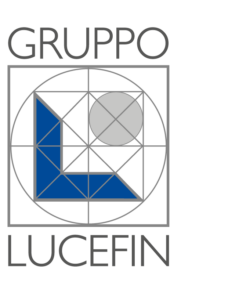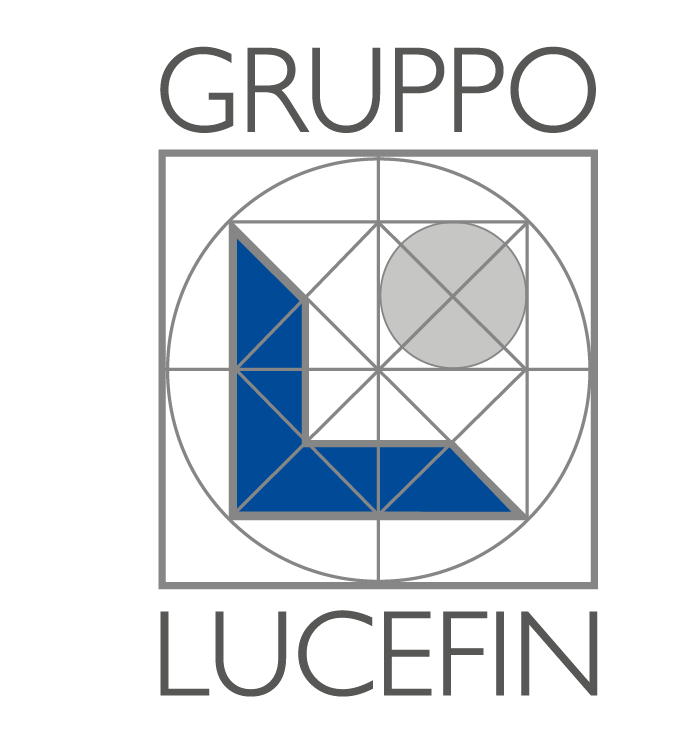

OUR GLOSSARY OF SUSTAINABILITY
In this section you can become better acquainted with some terms and acronyms that are commonly used in the world of sustainability. You will easily find them when dealing with topics connected with the concept of sustainability. We too use them every day and have decided to investigate their meaning in depth.
CLICK THE WORD TO VIEW ITS MEANING
The degree of responsibility of an organisation. It can also be referred to as “reporting principle” or “evidence of responsibility”. It includes two different meanings: either a clear, exhaustive and comprehensible sharing of data with third parties or the need to adopt self-awareness mechanisms in businesses and corporate networks as regards the use of resources and production of results.
A direct benefit given by the organisation under the form of financial contribution, provision of health-care or reimbursement of the expenses incurred by the employee.
Measure of the amount of greenhouse gas emissions, expressed as CO2 equivalent, directly or indirectly associated with a product, an organisation or a service.
It is defined as the sum of total emissions of a product during its whole life cycle, in particular by identifying and quantifying the consumption of raw materials and energy during the phases selected and during transport.
This index determines the quality and sustainability of businesses It allows identifying the most critical phases in terms of emissions, which makes it possible to implement emission-reducing actions.
The Environmental Certification is the issue of professional advice by an independent third party.
The “Certification of the Environmental Management System” includes an opinion on the level of compliance of the organisation’s Management System with the requirements of the applicable standard/s (ex. UNI EN ISO 14001, EMAS Eco-Management and Audit Scheme).
The “Environmental Declaration” covers completeness, understandability and reliability of the Environmental Report produced by an organisation (ex. EPD, ISO 14021, ISO 14024).
Document containing the social and moral rules of a business that all its members must respect. The Code of Ethics defines the in-house and out-house ethic and social responsibilities and the values that the organisation maintains and shares. It also includes procedures to notify and manage violations to the Code of Ethics.
CSRD DIRECTIVE (EU) 2022/2464 OF THE EUROPEAN PARLIAMENT AND OF THE COUNCIL of 14 December 2022 amending Regulation (EU) 537/2014, Directive 2004/109/EC, Directive 2006/43/EC, and Directive 2013/34/EU, as regards corporate sustainability reporting.
The CSRD Directive provides for gradual widening of the reporting scope to include not only public-interest entities, but also large undertakings not listed and listed small and medium-sized undertakings.
Basic principle of the Corporate Sustainability Reporting Directive (CSRD), the EU Directive meant to improve and standardize corporate sustainability reporting.
Double materiality requires the companies to supply information, in line with the ESG components, about the impact their operations exert on people and the environment (inside-out approach/impact materiality) and about the impact sustainability issues exert on them from the economic-financial point of view (outside-in approach/financial materiality).
Stakeholder engagement is an essential aspect of this analytical process.
Production and consumption model based on sharing, reusing, repairing, reconditioning and recycling materials and products. Its ultimate goal is to extend their life cycle, reintroduce materials in the economic cycle, thereby generating new value, and contribute to waste reduction.
The ESG (Environment, Social, Governance) acronym specifies the three components of sustainability used to evaluate the operations of an organisation. These principles include environmental, social and governance aspects, thereby providing an overall picture of non-financial performances of a company and of their overall impact on society and the environment.
International no-profit body established in the aim of setting sustainable performance reporting standards for the organisations belonging to whatever industry or country.
The GRI has developed the “GRI Standards” as a reporting framework meant for the organisations.
Individuals or group/s of individuals (such as the board of directors or a corporate trustee) responsible for supervising the strategic management of an organisation and its obligations in terms of responsibility and administration. For some organisations and jurisdictions, those entrusted with governance may include executive management.
Major global reference standards for sustainability reporting of organisations.
The GRI Standards provide the organisations and the stakeholders with a common language through which they can communicate and understand the sustainability performances of the organisations.
A report prepared in compliance with the GRI Standards provides a complete picture of an organisation’s material topics, their economic, environmental and social impacts and how such impacts are managed.
An international body and major developer of international voluntary standards that are accepted by more than 160 countries through their national standardisation bodies.
It is aimed at harmonising the standards issued by national standardisation bodies as regards technical and metrological procedures. Its directives are defined at international level and referred to as ISO standards.
Investments meant to prevent, reduce and repair the damages made to the environment, to the exclusion of all costs incurred by a business or a public body to fulfil the legal obligations connected with upgrading production methods in view of environmental protection.
Performance indicators are indexes that reflect the critical factors for the success of an organisation and measure the results obtained, thereby attesting the effectiveness with which a business, a team or a sector achieve their objectives.
KPIs supply ex-post measures, i.e. information on whether an objective has been reached or not, possibly together with a gap analysis.
Risk indicators are predictive indexes of unfavourable events that may negatively affect the organisations. They are used to constantly monitor risk exposure and contribute depowering the company negative actions in advance in view of avoiding crises and mitigate issues in time.
KRIs provide ex-ante measures, i.e. they foresee the events that might have an impact on corporate performances and attainment of objectives.
A resource that is not replenished in a short time, such as minerals, metals, oil, gas and coal.
Material that is used again and replaces virgin materials purchased or obtained from internal or external sources. Sub-products and production waste are not recycled materials.
Material that is derived from plentiful resources that are quickly replenished by ecological cycles or agricultural processes. Consequently, the services provided by these and other linked resources are not endangered and remain available for the next generations.
Measure of corporate operations impact on social and environmental issues.
Measure of the impact of environmental, social and governance issues on the financial performances of an undertaking.
Organisational and Management Model established in Italian Legislative Decree 231/2001. It includes all of the protocols laid down to govern and define the corporate structure and the management of its sensitive processes.
When applied correctly, Model 231 reduces the risk of criminal offences being perpetrated.
It allows businesses to be relieved of the crimes attributed to individual employees and to request exclusion or limitation of their liability deriving from any of the crimes listed in the decree.
It can also be regarded as a preventive system in as much as it promotes respect of corporate liability standards inside the organisation.
Implementing the Organisational Model 231 is a voluntary obligation and is strictly connected with the ESG approach.
Concept that describes the outcomes a report is expected to achieve and guides the decisions made throughout the reporting process around report content or quality.
An integrated report is a communication tool used to briefly illustrate how the strategy, governance, performances and prospects of an organisation, in the context of its external environment, lead to the creation, preservation or erosion of value in the short, medium or long term.
Voluntary integration of social and environmental worries in corporate processes, operations concerned, business operations, decision-making and company-to-stakeholders relations.
SDGs are the 17 sustainable development goals of Agenda 2030 signed by the governments of the 193 UN Member Countries in September 2015. These goals are universally valid, for which reason the Countries should contribute to reaching them in accordance with their capabilities. They are aimed at ending poverty, fighting inequality, supporting social and economic development, coping with climate changes and building peaceful societies by the year 2030.
Any entity or individual that can be influenced by the activities, products and services of the organisation or whose actions may affect the organisation’s capability to implement its strategies and successfully reach its objectives.
Stakeholders include subjects directly involved in the organisation, such as employees and shareholders, or that hold different types of relations with the organisation, such as co-operators, suppliers, vulnerable categories, local communities, NGOs and other organisations of the civil society.
When making decisions on sustainability reporting contents, the organisation should engage its stakeholders to understand their reasonable interests and expectations.
Development that currently satisfies the needs of the present generation without impairing the possibility of next generations to realise and satisfy theirs.
Sustainable development includes the financial, environmental and social aspects and makes reference to wider environmental and social interests and not to those of the single organisations.
A topic is considered to be material when it can significantly influence an organisation’s capability of generating value in the short, medium or long term.
The concept of shared value refers to an entrepreneurial model where a company’s search for financial success and competitive edge includes decisions and strategies with environmental and social aspects. Professors Porter and Kramer promoted the “shared value” topic in an article published by the Harvard Business Review in 2011.

© 2025 All rights Reserved – LUCEFIN S.P.A. via Ruc 30 Esine (BS) ITALY P.IVA IT01535340986 – lu*****@*******il.it – co*****@*****in.com








